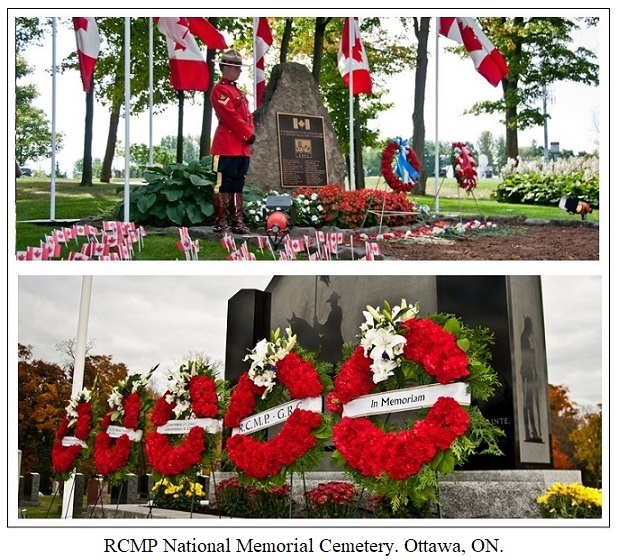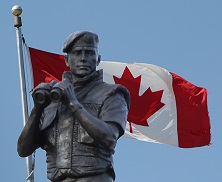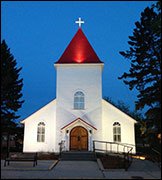True and Fascinating Canadian History
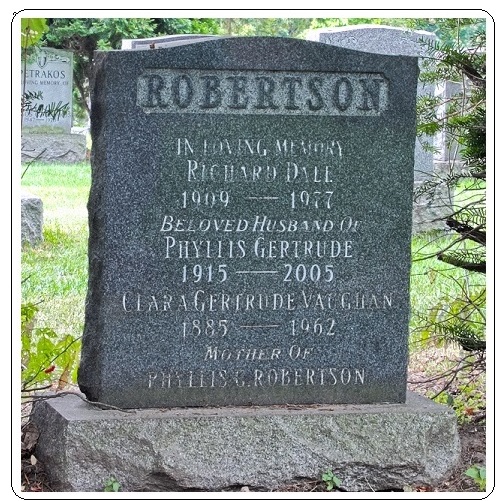
Vet of the Month: February 2010
Reg.#11901, Staff Sergeant 'Robbie Robertson
Ottawa, ON

Buffalo Joe; thank you, it is a pleasure to be asked to write a short story about my father.
My father 'Robbie' was born in 1909 in Liverpool, England and his older brother, my uncle Jim was born in 1906. Many years later, both my father and Jim would join the RCMP.
In the early 1900's, my grandfather Robertson was in the cotton business. In 1912, Gramps moved his family to Mississippi, USA, but due to WWI, he decided in 1915 to return to Liverpool. At the time, the Germans had warned that all ships were would be fired upon due to their war cargos. We were on-board the White Star's 'Arabic' and we reached England safely, but the 'Arabic' was sunk two sailings later. Once back in England, my grandfather settled in West Kirby, which is just outside Liverpool.
In 1923, Dad had to leave home due to limited family finances. He found work for two years on a farmer's poultry farm in West Legh and at the same time he also attended the local school. Dad returned to Liverpool, but he was unsuccessful getting hired with the Liverpool Police Force because he was too young. For the next two years, he worked in a law office.
At 18 years of age, he applied for the Liverpool Police again. He was unsuccessful for health reasons. At that point, Dad found work as a farm labourer.
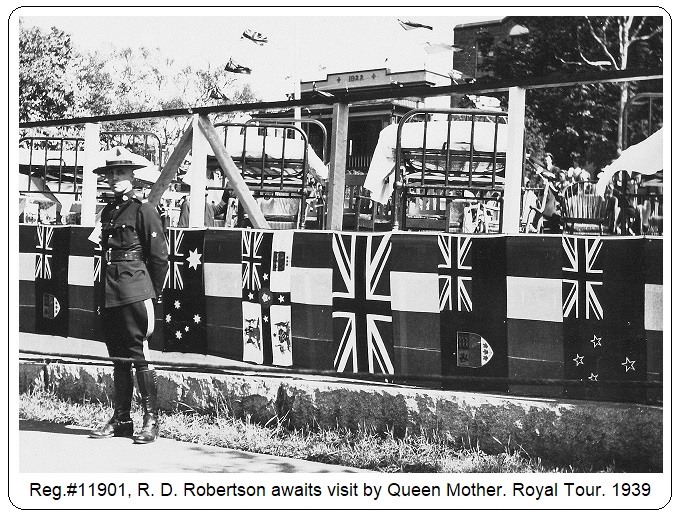
In 1928, the Canadian Government was offering a program whereby young boys could obtain positions working on farms in Canada. Dad was successful under the 'Boy Farm Learners Plan' and on July 13, 1928 he sailed for Canada. He was assigned to a farm on Lake Erie south of Brantford, Ontario.
The farmer was 72 years old and he was a very difficult, cranky man. His children had left him but Dad persevered for nine months. Unexpectedly, the farmer died so Dad ran the farm for two months at which time it was bought by a new person. My uncle Jim came to visit my father -- Jim had been working in the southern states on a cotton plantation. By this time, Dad and Jim excelled in rifle shooting and boxing.
My father was then hired by another farmer for whom he worked from the spring of 1929 until 1932, with a brief period elsewhere for a year in 1930-31. The farmer and his family were much the opposite of the last farmer family; in fact, Dad maintained contact with them for 45 years.
Dad then moved to the USA. He worked as a junior supervisor on a 5,000 acre cotton plantation in Mississippi. Money was hard to come by and the depression was looming so he returned to Canada. He applied to join the Force in 1932.
My Dad's application was made through a Corporal Truelove, at the Oshweken First Nation Reserve Detachment. After several months of waiting for a reply from the RCMP, he booked a trip back to the UK. The day before he was to leave, he heard news that he had been accepted into the Force and he was to report to 'N' Division, Ottawa.
Here's Dad's description of 'N' Division:
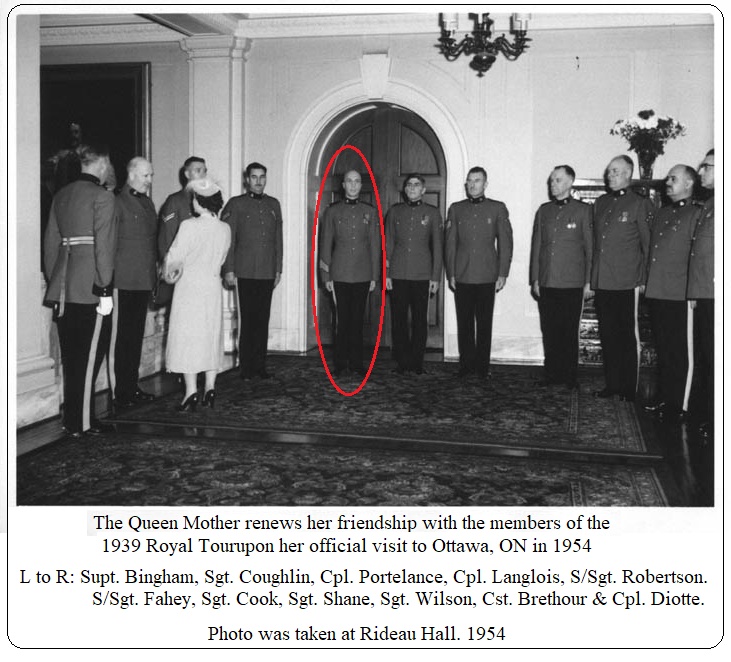
'In those days there was not a brick building in the establishment, simply a single frame building to serve as barracks and training centre with stables, gymnasium and dog kennels of varying antiquity and state of repair. The whole settlement was set on a piece of higher ground in the centre of Ottawa’s most fearsome mosquito swamp without a well-fitting screen in the area. For winter heat the large barrack room relied on two coke-fume belching potbellied stoves which either smothered or froze us as they felt disposed. Yet I know that I, and my approximately thirty-five companions, lived in comparative luxury to those of the days when the Force established the tradition we were allowed to take part in upholding...'
In Dad's words, 'How lucky I was -- I was Regimental Number 11901; and Reg.#11900 and those who preceded me were sent to the notorious 'Depot' in Regina for their basic training! There, we were told, the N.C.O.’s were far more fearsome and the winters of the prairies would test the fibre of any man. The thirty-five and forty degrees below zero we sometimes experience in Rockcliffe were spring-zephyrs in comparison with the winds of Regina and the open West!'
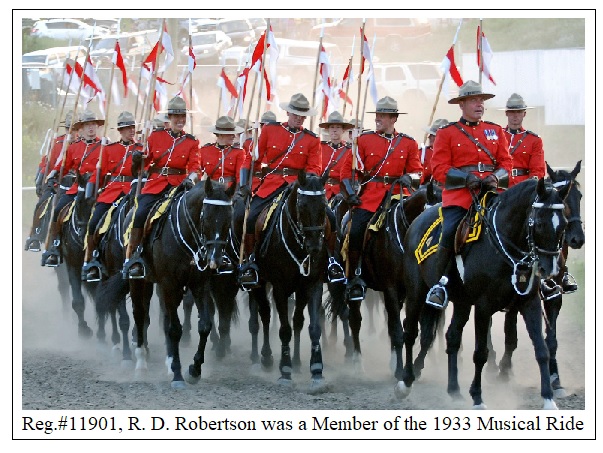
In 1933, Dad was assigned to the Musical Ride. He took part in some local appearances including Ottawa’s first Military Tattoo held at Lansdowne Park. Another event was his entrance in the 'saddle class' at the local Aylmer Fair. He rode his horse the 24 miles there and back to Aylmer where he collected second prize.
His proficiency in shooting at school paid off in his recruit days:...in due course. Dad said: '...I was lucky enough to win the Award as the 'Best Recruit Shot' in the Force with the big old .45 Colt we used in those days. I never was able in later years to capture the “Best Shot in the Force” Award. Perhaps my Scots revulsion at spending money on practice ammunition had something to do with this! In both rifle and revolver shooting I was able to compete with the top men all through my service but never good enough to gain the coveted Gold Crown to place over my crossed arms badges'.
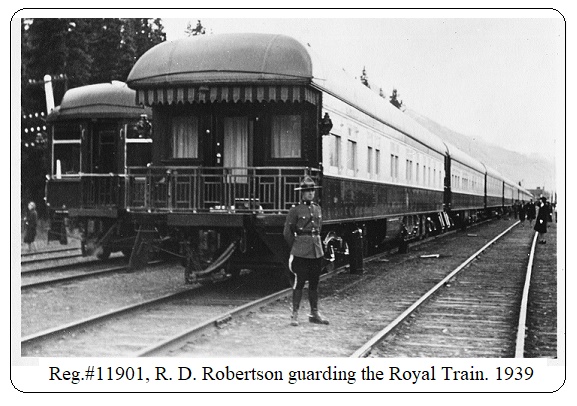
In the spring of 1934, Dad was assigned “On Command” at Headquarters in Ottawa which, at that time, consisted of two floors above Larocque’s department store on Rideau Street. Later in 1934, Dad acted as an observer on an aircraft watching “Rum Patrols” of the east coast. He served in both Gaspé and Shediac bases. (See an article in the October 1942 Quarterly written by Dad.)
In 1936, Dad was assigned to the Summer Detachment at Campobello Island, New Brunswick. Dad wrote: '...The OC, Supt. Salt, said that he wanted to send me down to the Summer Detachment of Campobello Island where President Roosevelt had his Canadian summer home.' Superintendent Salt said: 'I’m having trouble keeping my men down there Robertson. They remain a certain time and then they become “unsatisfactory” to the local inhabitants or officials.The fact of the matter is that there is a woman causing trouble ... she is a divorcée over there and she has extremely exaggerated ideas of her own importance and I might add “charm.” 'Unfortunately', Salt said: 'she is able to swing considerable weight on my men and I have been unable to combat her completely to date. I am not going to put you in residence on the Island. You will operate from our patrol boats in that area and visit the various islands as necessary. This way and by your own efforts I expect you to keep out of her clutches.'!
Dad survived and served in Campobello for two summers, during which time he was involved in directing the fighting of forest fires amongst other things. In his “memoirs”, he wrote this anecdote from his time in Campobello:
'...somewhere in the midst of all this or perhaps while fighting a fire on the Island there appeared a girl, a lovely girl, the girl I am married to. We had met playing badminton at old “Stone Church”, a lovely old Anglican Church in Saint John, NB where I had been stationed at least a part of the winter before. By a strange and convenient co-incidence she had a distant relative living on Campobello Island. So, she had arranged to spend her holidays there. We became engaged on the rocks above Herring Cove in the full clear light of a summer moon. I was reluctant to ask her knowing the disadvantages and the worries of a Detachment man’s wife.'
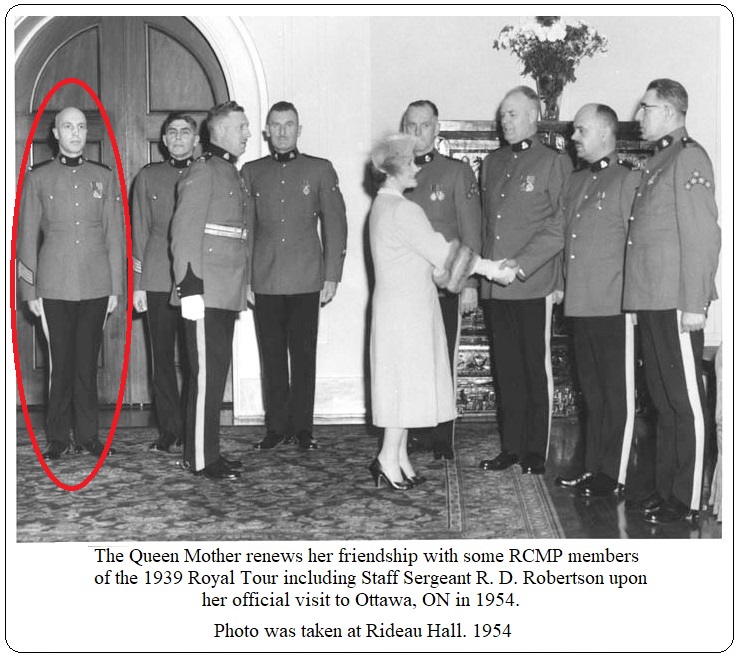
'The long hours, the uncertain hours, the refusal of any holiday between April and probably October. The fear of a husband coming home hurt or even not coming home at all. These and far too many others to mention here where [sic] the lot of a Detachment wife. Many a wife has done all the office work of a Detachment and guarded its prisoners too when her husband has been elsewhere on duty. I told her all this and then I think I said “What would you say if I asked you to marry me?” To which being a woman she replied “Why don’t you ask me?” I did and the answer was “Yes”! God bless her!'
In 1938 Dad, along with three other members, were posted to Glasgow, Scotland for six months at the British Empire Exhibition. Among Dad's notes are several items of interest: '...as the ship approached the dockside we saw an immense crowd. Now Lady Tweedsmuir was a passenger and we felt “How wonderful a welcome home she is receiving” but we were wrong. Lady Tweedsmuir had already gone ashore and this welcome was for us! We could not believe our eyes or ears, but there it was. The entire dockside was a mass of people.'
'The Glasgow Unit of the Legion of Frontiersmen came on board giving us at least the appearance of a semi-official welcome, but when we went ashore the crowd mobbed us. We could not get to Customs. We could not get anywhere...it was a thrilling experience for us to realize the high regard in which the Force was held even if some of the beliefs were a bit on the romantic side, at least as far as current service was concerned. Eventually local police made a way for us and we went through the formalities and reached our train…'.
'Our daily attendance at the Exhibition in Glasgow’s Bellahouston was no hardship. We put in eight hour shifts and had the other sixteen to do with as we saw fit. We were unduly idolized at all times and small boys and a few of the more courageous small girls sought autographs. No amount of persuasion that we were just ordinary policemen could deter their persistence. After autographs, it was photographs! How many times we posed with children, and sometimes with adults too, even an I.B.M. machine could not tabulate the score!'
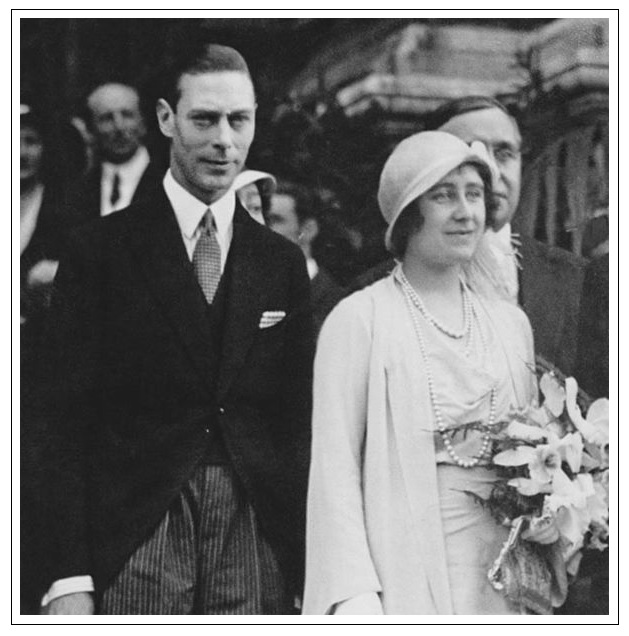
'The King and Queen opened the Exhibition and as they drove away we found that the attraction of the “Mountie” had penetrated the Palace too. The two little princesses watched us carefully until the carriage drew out of sight. Just before that, a shy wave. A breach of discipline I suspect! And now the older of those little girls is my Queen and her picture hangs on my office wall.' The year 1939 saw my father on the Pilot Train for the Royal visit cross Canada. After the Royal Visit, he returned to New Brunswick to do Intelligence work with the start of WWII.
In 1940, Dad moved to Ottawa to carry on with the Intelligence work and he was involved over the years with: 'The internment of the Italian Fascists in Canada', the Gaspé spy case when a German spy was landed by submarine in New Carlisle PQ and the Gouzenko case.
The Geneva Peace Conference brought Robbie to Geneva in 1954 as Security Chief for the Canadian delegation. Then, it was time to retire
In 1958, Dad left the Force on this note. He wrote: 'This I will say, I served the Mounted Police loyally and with every effort available to me from the day I joined until the day twenty-five years and three hundred and eleven days later when I roceeded to pension. I don’t think that I was a good “Policeman” from the point of view of the Force but I think I did do a lot of good as a policeman by always viewing the other side of the story and always having the betterment rather than the punishment of any individual at heart. I remember with a great deal of pride and humility a repeater burglar who turned to a companion and said “I will go with Mr. Robertson, but I won’t go with you.” My companion was undoubtedly a better policeman than I was. Courageous far beyond anything I could claim. Fair and straightforward in his dealings but simply a policeman performing his duty in accordance with law and regulation; but all this is jumping too far ahead.'

For the next 16 years Dad acted as a Liaison between the Corps of Commissionaires and the Federal Government. He retired in 1974 to his hobby of “rock hounding”, reading, volunteer work and travel.
Reg.#11901, Richard 'Robbie' Robertson died on July 13, 1977.
I can't overlook to mention that Dad's older brother, Jim (B: 1906) was also in the Force. Uncle Jim's R3g.# tag was Reg.#10793.
A book with all of Dad's writings, including details of his RCMP time, is available at:
http://www.blurb.com/bookstore/detail/2474406
Reporting from Fort Healy,
J. J. Healy,
February 23, 2010
